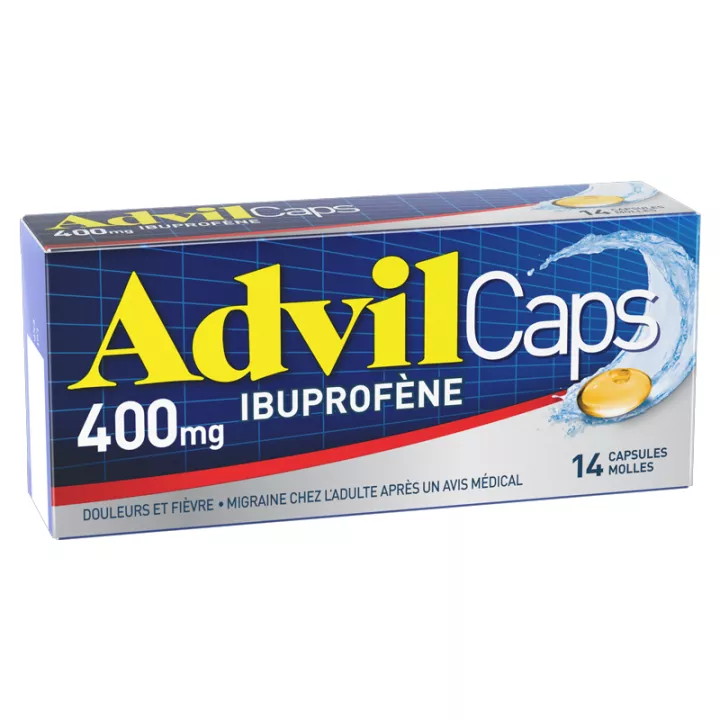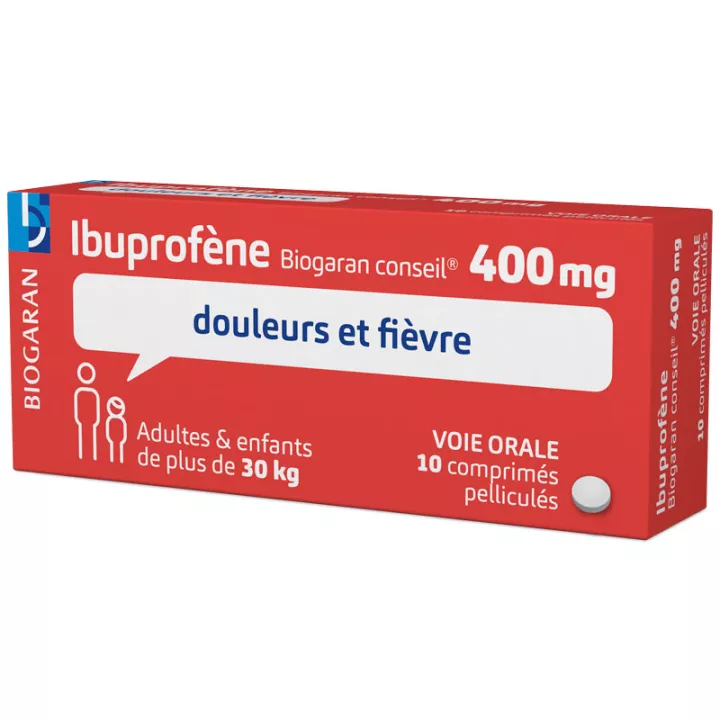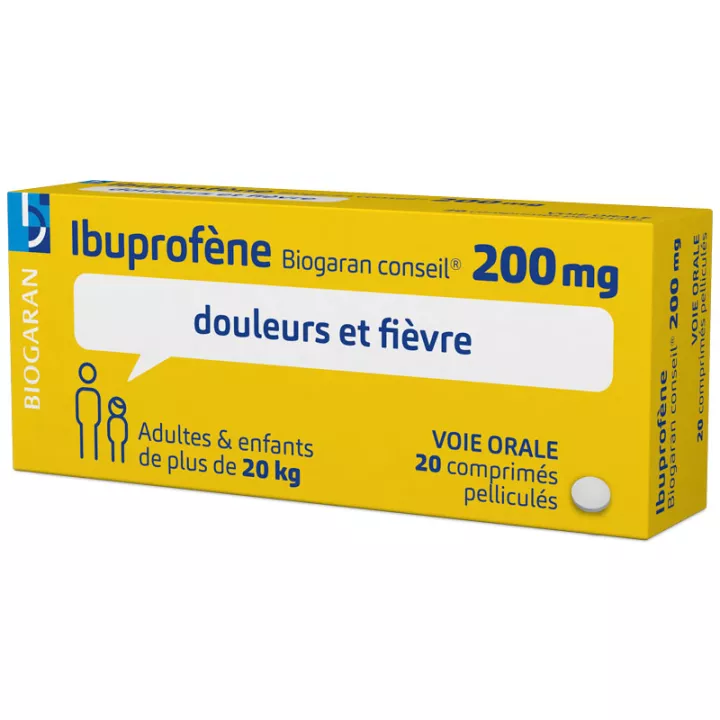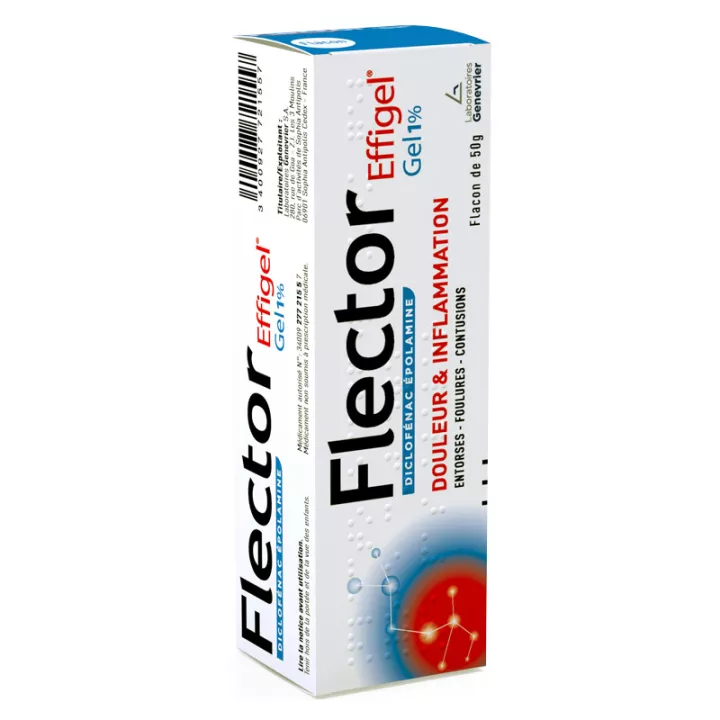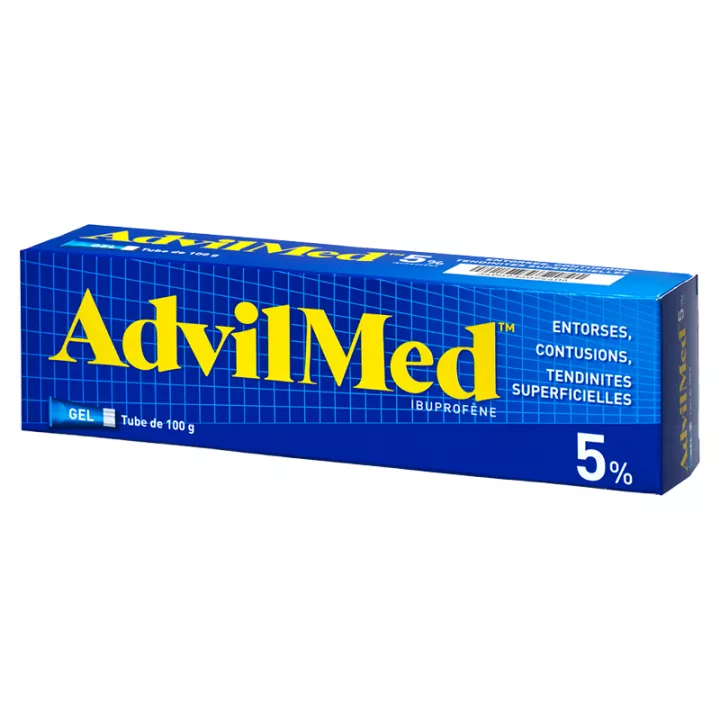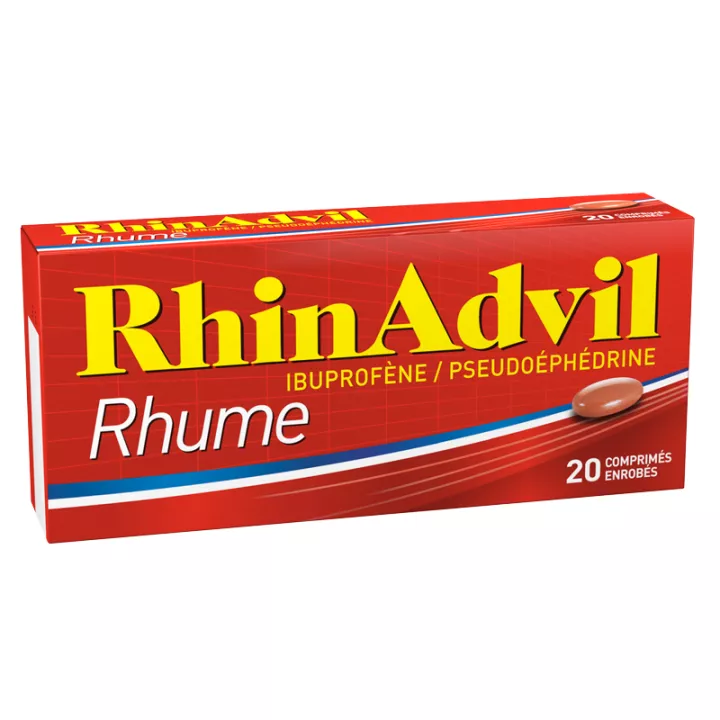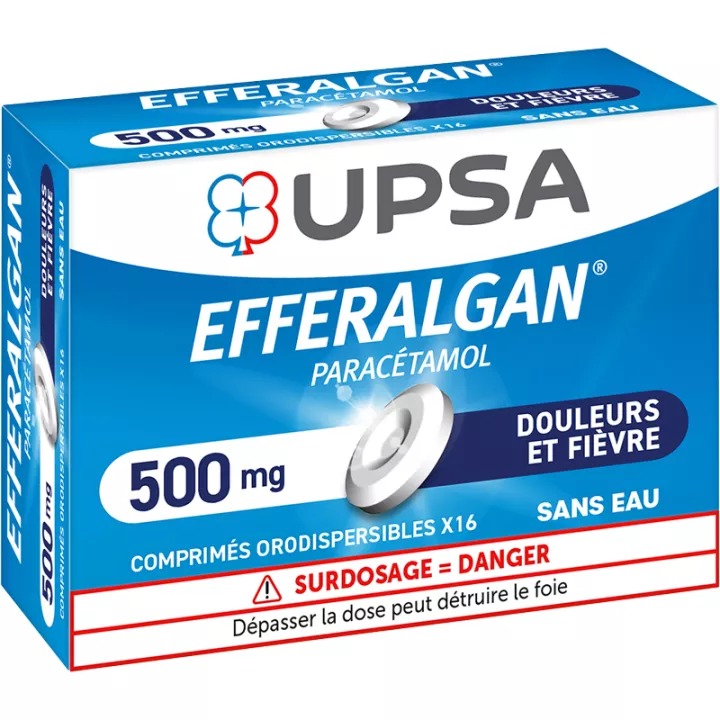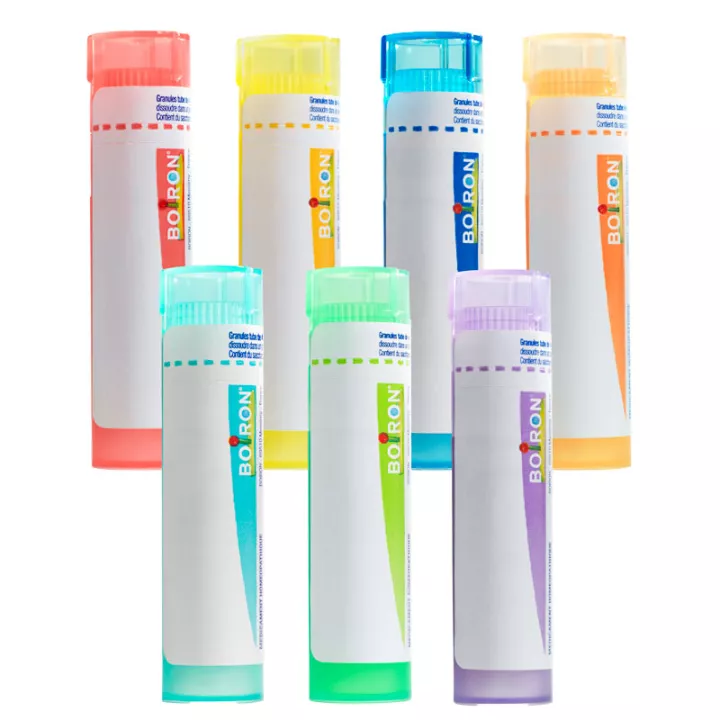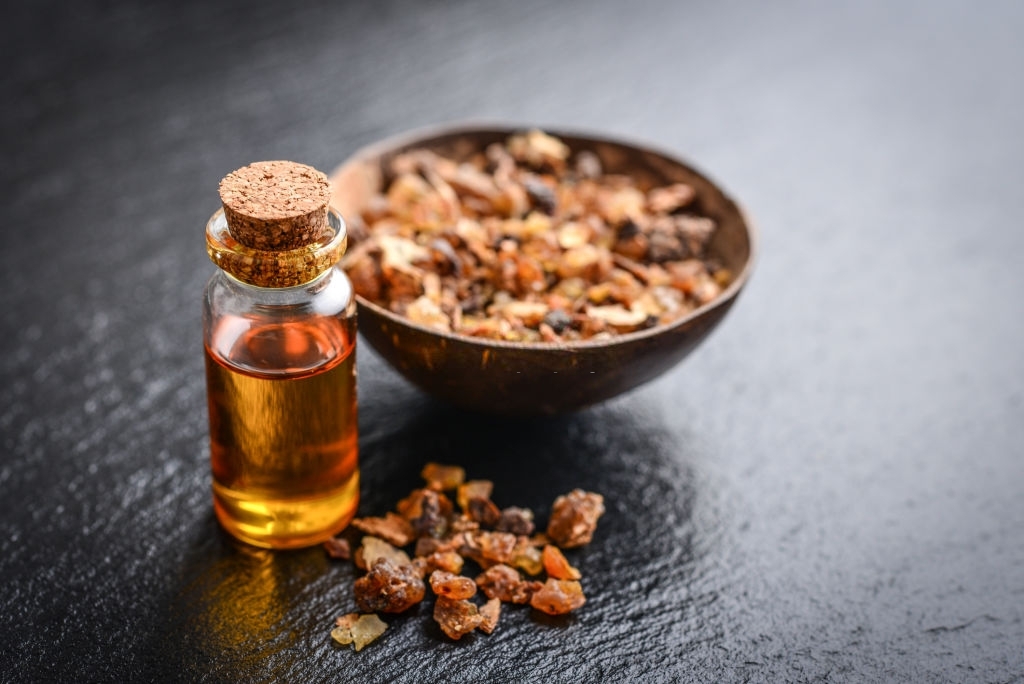NOTICE
ANSM - Last updated: 13/08/2015
Name of the medicinal product
ADVILCAPS 400 mg soft capsule
Ibuprofen
framed
Read this leaflet carefully before you start using this medicine. It contains important information for your treatment.
· This medication can be used in self-medication, ie used without consultation or prescription from a doctor.
· If symptoms persist, worsen or new symptoms appear, seek advice from your pharmacist or doctor.
· This leaflet is designed to help you use this medicine. Keep it, you may need to reread it.
DO NOT LEAVE THIS MEDICINE FOR CHILDREN.
Review summary
In this notice :
1. WHAT IS ADVILCAPS 400 mg, soft capsule AND WHAT IT IS USED FOR?
2. BEFORE YOU TAKE ADVILCAPS 400 mg, soft capsule?
3. HOW TO TAKE ADVILCAPS 400 mg, soft capsule?
4. WHAT ARE POSSIBLE SIDE EFFECTS?
5. HOW TO STORE ADVILCAPS 400 mg, soft capsule?
6. ADDITIONAL INFORMATION
1. WHAT IS ADVILCAPS 400 mg, soft capsule AND WHAT IT IS USED FOR?
Pharmacotherapeutic group
ANALGESIC AND ANTIPYRETIC.
Therapeutic indications
This medicine contains a non-steroidal anti-inflammatory drug: ibuprofen.
It is indicated in adults and children from 30 kg (approximately 11-12 years), in the short-term treatment of fever and / or pain such as headache, flu-like conditions, dental pain , aches and pains.
It is indicated in adults , after at least medical advice , in the treatment of mild to moderate migraine attack, with or without aura.
2. BEFORE YOU TAKE ADVILCAPS 400 mg, soft capsule?
List of information needed before taking the medication
If your doctor has told you about an intolerance to some sugars, contact your doctor before taking this medicine.
Cons-indications
Do not take ADVILCAPS 400 mg soft capsules in the following cases:
· after 5 months of pregnancy (24 weeks of amenorrhea),
· a history of allergy or asthma triggered by the use of this drug or a related drug, including other non-steroidal anti-inflammatory drugs, acetylsalicylic acid (aspirin),
· antecedent allergy to the other constituents of the soft capsule,
· history of gastrointestinal bleeding or ulcers associated with previous NSAID treatments,
· ulceration or bleeding of the stomach or intestine in progress or recurrence,
· gastrointestinal haemorrhage, cerebral hemorrhage or other ongoing hemorrhage,
· severe liver disease,
· severe kidney disease,
· serious heart disease,
· systemic lupus erythematosus.
IN CASE OF DOUBT, IT IS ESSENTIAL TO ASK FOR THE OPINION OF YOUR DOCTOR OR YOUR PHARMACIST.
Precautions for use; special warnings
Take special care with ADVILCAPS 400 mg soft capsule:
In high doses, greater than 1200 mg / day, this drug has anti-inflammatory properties and can cause serious disadvantages that are observed with non-steroidal anti-inflammatory drugs.
Drugs such as ADVILCAPS 400 mg, soft capsule may increase the risk of heart attack ("myocardial infarction") or stroke. The risk is higher the higher the doses prolonged treatment.
Do not exceed recommended dosage or treatment time.
If you have heart problems, have had a stroke, or if you think you have risk factors for this type of illness (eg high blood pressure, diabetes, high cholesterol, or please contact your doctor or pharmacist.
Special warnings
If you are a woman, ADVILCAPS 400 mg, soft capsule can impair your fertility. Its use is not recommended in women who wish to conceive a child. In women with reproductive difficulties or in whom breast function tests are ongoing, please talk to your doctor or pharmacist before taking ADVILCAPS 400 mg soft capsule.
Elderly patients have a higher risk of adverse effects, particularly for gastrointestinal haemorrhage, ulcers and perforations. Renal, hepatic and cardiac functions should be closely monitored. The dosage should be as low as possible for the shortest time needed to relieve symptoms.
The use of this medication is not recommended in patients with fructose intolerance (rare hereditary disease).
BEFORE YOU USE THIS MEDICINE, CONSULT YOUR DOCTOR IN CASE:
· a history of asthma associated with chronic rhinitis, chronic sinusitis or polyps in the nose. Administration of this specialty may lead to an asthma attack, especially in some people who are allergic to acetylsalicylic acid (aspirin) or to a non-steroidal anti-inflammatory drug ( see section "Do not take ADVILCAPS 400 mg, soft capsule following cases " ),
· coagulation disorders, and anticoagulant therapy. This medication may cause severe gastrointestinal symptoms,
· digestive antecedents (hiatal hernia, digestive hemorrhage, old stomach or duodenal ulcer),
· heart disease, liver or kidney disease,
· of varicella. This medication is not recommended because of exceptional severe infections of the skin,
· concomitant treatment with other drugs that increase the risk of peptic ulcer or haemorrhage, eg, oral corticosteroids, antidepressants (SSRIs, ie, Selective Serotonin Recapture Inhibitors), medicines preventing the formation of blood clots such as aspirin or anticoagulants such as warfarin. If you are in any of these conditions, talk to your doctor before taking ADVILCAPS 400 mg, soft capsule ( see section "Take or use other medicines" ),
· concomitant therapy with methotrexate at doses greater than 20 mg per week or with pemetrexed ( see section "Take or use other medicinal products" ).
DURING TREATMENT, IN CASE OF:
· of vision problems, PREVENT YOUR DOCTOR,
· gastrointestinal haemorrhage (discharge from the mouth or stool, stool coloration in black), STOP TREATMENT AND IMMEDIATELY CONTACT AN EMERGENCY MEDICAL OR MEDICAL SERVICE,
· of appearances of cutaneous or mucosal signs that resemble a burn (redness with bubbles or blisters, ulcerations), STOP THE TREATMENT AND CONTACT IMMEDIATELY A DOCTOR OR AN EMERGENCY MEDICAL SERVICE,
· of allergy-related signs including asthma attack or sudden swelling of the face and neck ( see section "What are the possible side effects?" ), STOP TREATMENT AND CONTACT IMMEDIATELY A DOCTOR OR A MEDICAL SERVICE EMERGENCY.
This medicine contains a non-steroidal anti-inflammatory drug: ibuprofen . You should not take other medicines containing non-steroidal anti-inflammatory drugs (including selective cyclooxygenase 2 inhibitors) and / or acetylsalicylic acid (aspirin) at the same time as this medication. Read carefully the instructions for other medicines you are taking to ensure that there are no nonsteroidal anti-inflammatory drugs and / or acetylsalicylic acid (aspirin). |
Interaction with other medicines
Taking or using other medicines:
PLEASE INDICATE YOUR DOCTOR OR YOUR PHARMACIST IF YOU TAKE OR RECENTLY TAKE ANY OTHER MEDICINE, EVEN IF ANY MEDICINE IS OBTAINED WITHOUT ORDER.
CERTAIN MEDICINAL PRODUCTS MAY NOT BE USED AT THE SAME TIME, WHILE OTHER MEDICINES REQUIRE SPECIFIC CHANGES (DOSE, FOR EXAMPLE).
Always inform your doctor, dentist or pharmacist if you are taking any of the following medications in addition to ADVILCAPS 400 mg soft capsule:
· aspirin (acetylsalicylic acid) or other non-steroidal anti-inflammatory drugs
· corticosteroids
· oral anticoagulants such as warfarin, injectable heparin, antiplatelet agents or other thrombolytics such as ticlopidine
· lithium
· methotrexate
· angiotensin converting enzyme inhibitors, diuretics, beta-blockers and angiotensin II antagonists
· some antidepressants (selective serotonin reuptake inhibitors)
· pemetrexed
· ciclosporin, tacrolimus.
Interactions with food and beverages
Not applicable.
Interactions with Herbal Medicines or Alternative Therapies
Not applicable.
Use during pregnancy and lactation
Pregnancy and breast feeding
ASK YOUR DOCTOR OR YOUR PHARMACIST BEFORE TAKING ALL MEDICINAL PRODUCTS.
Pregnancy
During the first trimester (12 weeks of gestation is 12 weeks after the 1st day of your last period), your doctor may, if necessary, to prescribe the drug.
For 2.5 to 5 months of pregnancy (12 to 24 weeks of amenorrhea), this medication will only be used on the advice of your doctor and in brief dosage. Prolonged use of this medication is strongly discouraged.
After 5 months of pregnancy (beyond 24 weeks of amenorrhea), you should NOT take this medication because its effects on your child can have serious consequences, especially on a cardiopulmonary level and renal, even with a single dose.
If you are taking this medication when you are more than five months pregnant, please speak to your obstetrician gynecologist for appropriate monitoring.
feeding
This drug passes into breast milk. As a precaution, it should be avoided during breastfeeding.
Sport
Not applicable.
Effects on ability to drive or use machines
Driving and using machines:
In rare cases, taking this medicine may cause dizziness and blurred vision.
List of excipients with known effect
Important information about some of the ingredients of ADVILCAPS 400 mg soft capsule:
This medicine contains sorbitol (E420) and maltitol (E965).
3. HOW TO TAKE ADVILCAPS 400 mg, soft capsule?
Instructions for proper use
The occurrence of adverse reactions can be minimized by using the lowest possible dose for the shortest duration necessary to alleviate the symptoms.
Dosage, Mode and / or route (s) of administration, Frequency of administration and Duration of treatment
Dosage
Painful and / or febrile conditions
ADULTS TO ADULT AND CHILD WEIGHT MORE THAN 30 KG (11-12 years).
The usual dosage is 1 capsule to 400 mg per dose, to be renewed if necessary every 6 to 8 hours, not to exceed 3 capsules to 400 mg per day (ie 1200 mg per day).
The capsule dosed at 400 mg is reserved for pain or fever more intense or not relieved by a capsule dosed with 200 mg of ibuprofen.
The elderly with an increased risk of adverse effects should use the lowest possible dose for the shortest time necessary to relieve symptoms.
Do not exceed the recommended doses or the duration of treatment (3 days in case of fever, 5 days in case of pain).
The maximum dosage is 3 capsules per day (1200 mg).
In the event of a migraine attack
RESERVED FOR ADULTS
1 capsule to 400 mg as soon as possible from the beginning of the crisis.
If a patient is not relieved after the first dose, a second dose should not be taken during the same course. However the crisis can be treated with another treatment that is not a nonsteroidal anti-inflammatory or aspirin.
If the pain reappears a second dose can be taken as long as it meets an 8 hour interval between the 2 doses.
If in doubt, ask your doctor or pharmacist for advice.
Administration mode
Oral use.
Swallow the capsule, without chewing it, with a large glass of water.
The capsules should be taken preferably during a meal.
Frequency of Administration
Systematic catches help to avoid oscillations of pain or fever.
They should be spaced at least 6 hours.
Duration of the treatment
The duration of use is limited to: · 3 days in case of fever, · 3 days in case of migraine, · 5 days in case of pain |
If the pain persists more than 5 days or fever more than 3 days, if they worsen or in case of a new disorder, inform your doctor.
In case of a migraine attack the duration of treatment should not exceed 3 days.
If symptoms persist or if new symptoms appear, seek the advice of your pharmacist or doctor.
If you feel that the effect of ADVILCAPS 400 mg, soft capsule is too strong or too weak: talk to your doctor or pharmacist.
Symptoms and Instructions for Overdose
If you take more ADVILCAPS 400 mg, soft capsule than you should:
In case of accidental overdose or intoxication, STOP TREATMENT AND IMMEDIATELY CONSULT YOUR DOCTOR.
Instructions for omission of one or more doses
If you forget to take ADVILCAPS 400 mg, soft capsule:
Do not take a double dose to make up for the single dose that you have forgotten to take.
Risk of withdrawal syndrome
Not applicable.
4. WHAT ARE POSSIBLE SIDE EFFECTS?
Description of adverse reactions
Like all medicines, ADVILCAPS 400 mg, soft capsule is likely to have side effects, although not everyone is subject to it.
Medications such as ADVILCAPS 400 mg, soft capsule may increase the risk of heart attack (myocardial infarction) or stroke.
May cause allergic reactions :
· rash: rash on the skin, itching, edema, aggravation of chronic urticaria,
· respiratory, asthma crisis,
· general: abrupt swelling of the face and neck with respiratory gene (angioedema).
In rare cases, gastrointestinal haemorrhage may occur ( see section "Take special precautions with ADVILCAPS 400 mg soft capsule" ). This is all the more frequent when the dosage used is high.
Exceptionally, there may be headaches accompanied by nausea, vomiting and neck stiffness.
Exceptionally, severe skin infections have been observed in cases of chicken pox.
Very rarely, bullous manifestations of the skin or mucous membranes (burning sensation accompanied by redness with bubbles, blisters, ulcerations) may occur.
In all these cases, you should stop treatment immediately and notify your doctor.
During treatment, there may be:
· digestive disorders: stomach upset, vomiting, nausea, diarrhea, constipation,
· unusual dizziness, headache, rare visual disturbances, significant decrease in urine, renal insufficiency.
In all cases, you should tell your doctor.
· Exceptionally, there have been changes in liver function or blood counts (decreased white blood cells or red blood cells) that may be severe.
Declaration of side effects
If you experience any side effects, talk to your doctor or pharmacist. This also applies to any side effects not mentioned in this leaflet. You can also report adverse reactions directly via the national reporting system: National Agency for the Safety of Medicines and Health Products (ANSM) and network of Regional Centers of Pharmacovigilance. www.ansm.sante.fr . By reporting adverse reactions, you are helping to provide more information about the safety of the drug.
5. HOW TO STORE ADVILCAPS 400 mg, soft capsule?
Keep out of the reach and sight of children.
Expiration date
Do not use ADVILCAPS 400 mg, soft capsule after the expiry date stated on the carton.
Storage conditions
Store at a temperature not exceeding 25 ° C.
If necessary, warnings against visible signs of deterioration
Medicines should not be disposed of via wastewater or household waste. Ask your pharmacist what to do with unused medications. These measures will help protect the environment.
6. ADDITIONAL INFORMATION
Full list of active substances and excipients
What does ADVILCAPS 400 mg contain, soft capsule?
The active substance is:
Ibuprofen ................................................. .................................................. ................................ 400.00 mg
For a soft capsule.
The other components are:
Macrogol 600, 50% solution of potassium hydroxide.
Capsule envelope : partially dehydrated liquid sorbitol *, gelatin, purified water.
Ink for printing : OPACODE NSP-78-17827 (alcohol SDA 35A (ethanol and ethyl acetate), propylene glycol, black iron oxide (E172), polyvinyl acetate phthalate, purified water, isopropyl alcohol, macrogol 400, aluminum to 28%).
Partially dehydrated liquid sorbitol contains sorbitol, maltitol, 1,4-sorbitan, sorbitans and purified water.
Pharmaceutical form and content
What is ADVILCAPS 400 mg, soft capsule and contents of the pack?
This medication is in the form of a soft capsule.
Box of 8, 9, 10, 12 or 14.
Not all pack sizes may be marketed.
Name and address of the marketing authorization holder and the holder of the manufacturing authorization responsible for the release of the lots, if different
Holder
PFIZER FAMILY HEALTH
23-25, avenue du Docteur
Lannelongue
75014 PARIS
exploiting
PFIZER FAMILY HEALTH
23-25 rue du Docteur Lannelongue
75014 PARIS
Maker
PFIZER CONSUMER MANUFACTURING ITALY SRL
VIA NETTUNENSE, 90
04011 APRILIA (LT)
ITALY
Names of the medicinal product in the Member States of the European Economic Area
Not applicable.
Date of approval of the notice
The last date on which this leaflet was approved is {date}.
AMM under exceptional circumstances
Not applicable.
Internet Information
Detailed information on this medicine is available on the Afssaps website (France).
Information for health professionals only
Not applicable.
Other
ADVICE / HEALTH EDUCATION
"WHAT TO DO IN THE EVENT OF FEVER":
The normal temperature of the body is variable from one individual to another and between 36.5 ° C and 37.5 ° C. An increase of more than 0.8 ° C is considered a fever.
In adults and children over 30 kg (approximately 11-12 years of age) : If the condition is too troublesome, you can take a medicine containing ibuprofen at the indicated dosage.
With this medication, the fever should drop rapidly. Nevertheless :
· if other signs appear (such as a rash),
· if the fever persists for more than 3 days or if it worsens,
· if the headache becomes violent, or in case of vomiting,
CONSULT YOUR DOCTOR IMMEDIATELY.
"WHAT TO DO IN CASE OF PAIN":
· In the absence of improvement after 5 days of treatment,
· If the pain returns regularly,
· If accompanied by fever,
· If she wakes you up at night,
 CONSULT YOUR DOCTOR IMMEDIATELY.
CONSULT YOUR DOCTOR IMMEDIATELY.
MIGRAINE OR HEADSELF?
· Headache for a few hours to 3 days (without pain between seizures).
· At least 5 crises in your life
· Headache having at least 2 of the following characteristics:
o Located on one side of the head;
o Pulsatile (taps in the head);
o Intensity of moderate or severe pain;
o Pain aggravated by physical activities (climbing or descending stairs for example).
· The headache is accompanied by at least one of the following signs:
o nausea and / or vomiting;
o discomfort to light (photophobia) and / or noise (phonophobia).
A positive answer to 3 or 4 of these questions means that you are probably or certainly migraineous.
 IS YOUR TREATMENT EFFECTIVE?
IS YOUR TREATMENT EFFECTIVE?
· Are you relieved significantly 2 hours after taking?
· Is this drug well tolerated?
· Do you use a single medication intake?
· If you are taking this medication, you may be able to resume your usual activities
· 2 hours near the plug?

